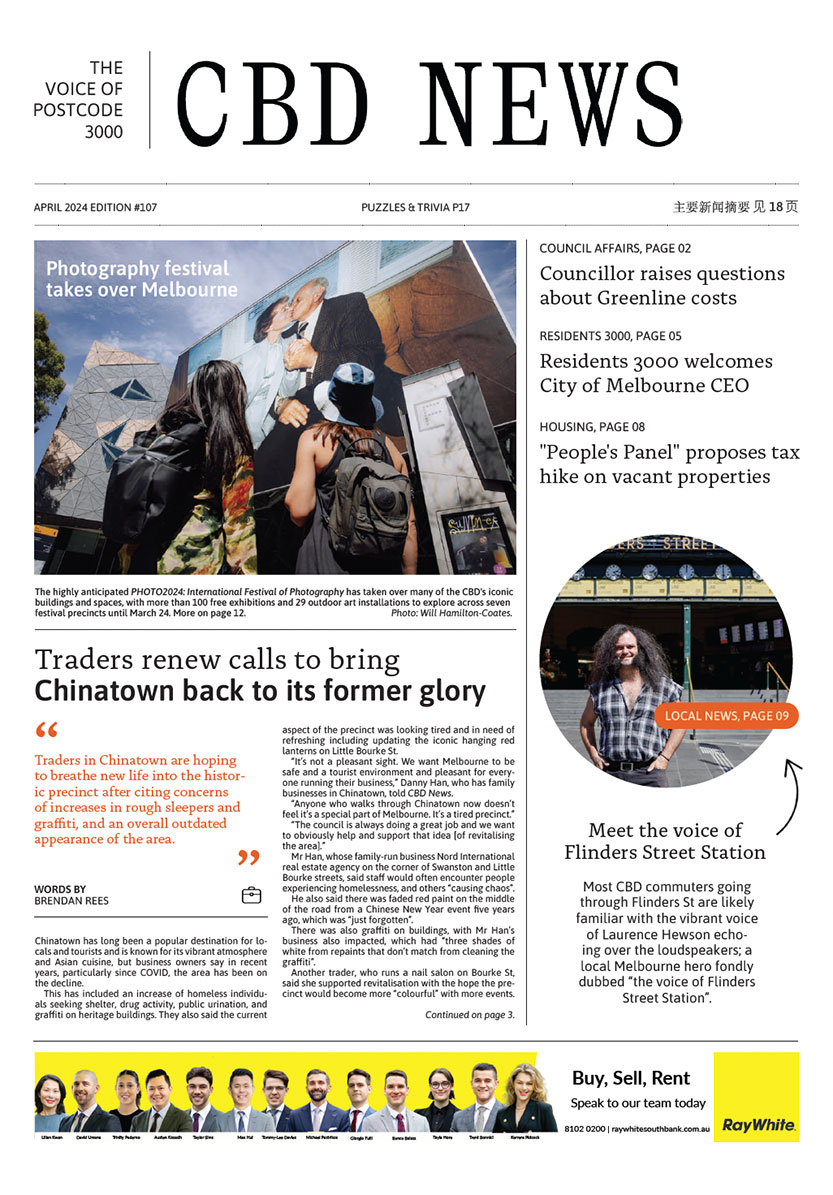A COVID-19 recovery for ALL
By Brendan Nottle - Salvation Army
There has been a lot of fervent debate about whether a safe injecting room should be located in the heart of our city. There has also been much conjecture about where it should be located.
There is a strong suggestion about it being located on Flinders St near Elizabeth St. The reason for this is that Ambulance Victoria data indicates that during the period of 2015-2020, 25 per cent of the city’s heroin overdoses occurred within 250 metres of that intersection. This area has long been a hot spot for drug use.
Much of the concern about the location of the safe injecting room emanates from a city that is on its knees and desperately trying to recover from the devastating impact of the COVID-19 pandemic.
I am in the city every day, as I have been for the best part of 20 years. There is no question that small businesses are suffering immeasurably.
We must have a COVID-19 recovery designed to help small businesses recover – there is no question. Small businesses are the lifeblood of our city. They are at the epicentre of creating a culture that attracts visitors and as a result, employs a significant number of people.
But as much as the COVID-19 recovery must include small businesses, the recovery cannot only be about them. It cannot be a recovery only “for people like us”.
Before us now is a once-in-a-lifetime opportunity to re-build the city – not just in our image or for people like us. Rather, it’s a moment in time where we can build a recovery for all.
This notion of recovery for all, no-one left behind, is not a quaint concept that has been conjured up in the deep recesses of mind over a bad pizza.
“No-one left behind” is a value that has been embedded in the heart of the city by the Wurundjeri people. It was also a concept espoused by Henry Reed, a fascinating associate of John Batman. Reed was a wealthy pastoralist who travelled to Melbourne from Launceston in August 1835.
Reed spent time with the local Aboriginal people, to the point where, when it was time for Reed to return to Launceston, he and the local Wurundjeri people were saddened by his departure.
Henry Reed’s worldview was driven by his Methodist theology. No one left behind, bringing the outsider into the centre of the community, challenging and changing systems that produced victims, were all guiding principles for Reed. Henry Reed became a major financial supporter of The Salvation Army while it was in its infancy in London in 1865. His grandson, Hudson Fysch, became one of the founders of Qantas. Reed’s values resonated throughout Melbourne, even though he wasn’t physically present. In 1869, Dr John Singleton and his friend, the Rev. John Horsley, received a delegation of people who were deeply concerned about the number of people dying from preventable disease, particularly children.
As a result of this meeting, Singleton built the world’s first free medical clinic in Wellington St in Collingwood. Singleton was also responsible for building the world’s first halfway house for prisoners in Argyle St in Carlton.
Why?
Because Singleton and his peers were driven by the values of compassion, no-one left behind and including the outsider – values embedded by the Wurundjeri people, Reed and others.
These values caused Melbourne to become known in the 1890s as the world’s first social experiment. As a result, people travelled from around the world to view a city that was built on compassion and including and caring for the excluded.
These values and the embodiment of them by Melburnians meant that Melbourne was a different city to many others. Melbourne was communitarian. Sydney was very different as it was built on and rewarded individual enterprise.
As we re-build our city, lets implore and encourage each other to ensure that it is a recovery built on our long-held values of no-one left behind. Let’s ensure that this once-in-a-generation recovery is a recovery for all, not just for some.
When we look at our city through this lens, a safe injecting room actually makes complete sense in a city that is renowned for its compassion for all and its historic passion to ensure no single person is excluded or locked out •

Backloading across borders with Transcorp – navigating interstate moves with ease



 Download the Latest Edition
Download the Latest Edition